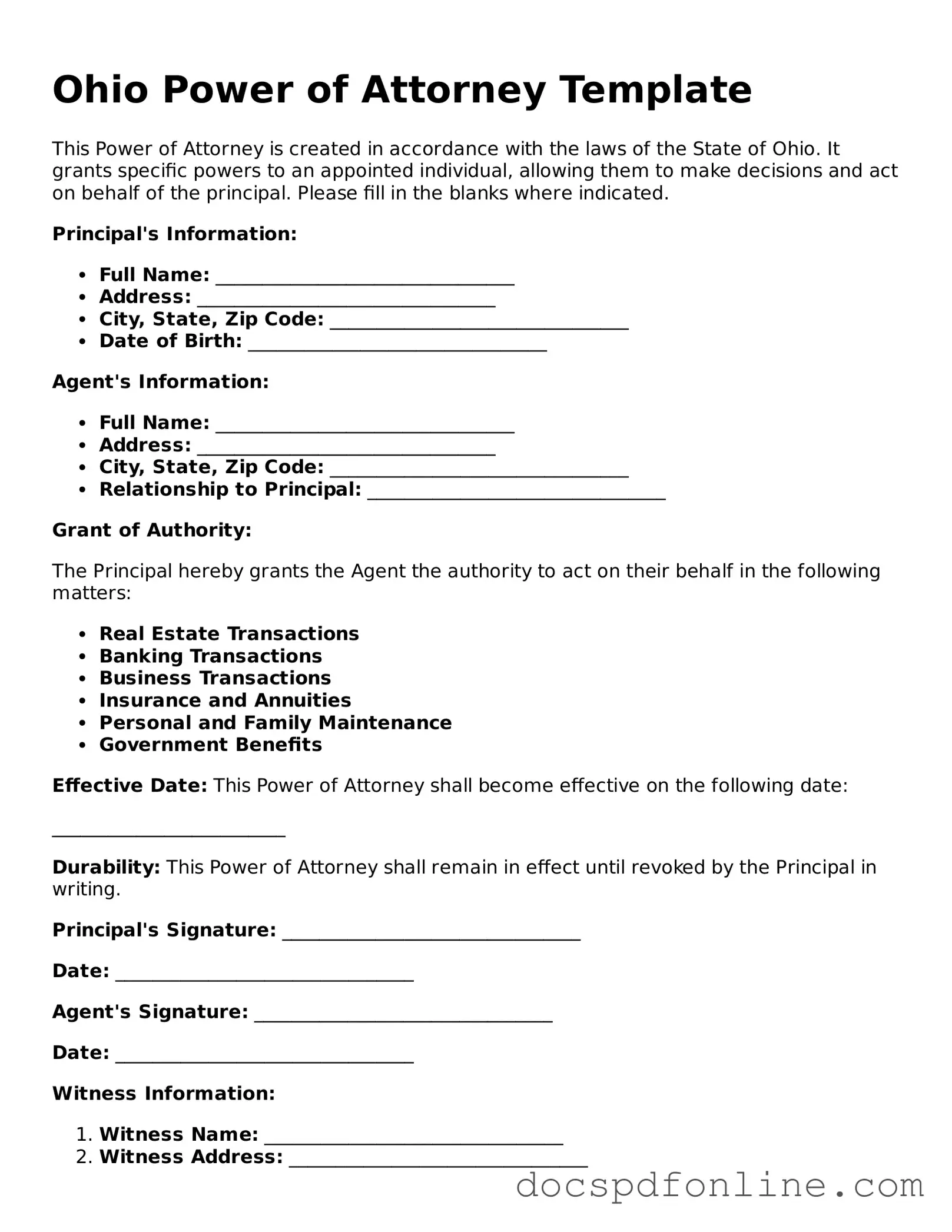Legal Power of Attorney Template for Ohio
The Ohio Power of Attorney form is a legal document that allows one person to grant another person the authority to make decisions on their behalf. This can include managing finances, making healthcare choices, or handling legal matters. Understanding this form is crucial for anyone looking to ensure their wishes are respected when they are unable to act for themselves.
Launch Editor Now

Legal Power of Attorney Template for Ohio
Launch Editor Now
Save time — finish this form fast
Finish Power of Attorney online — edit, save, download made easy.
Launch Editor Now
or
↓ PDF File
